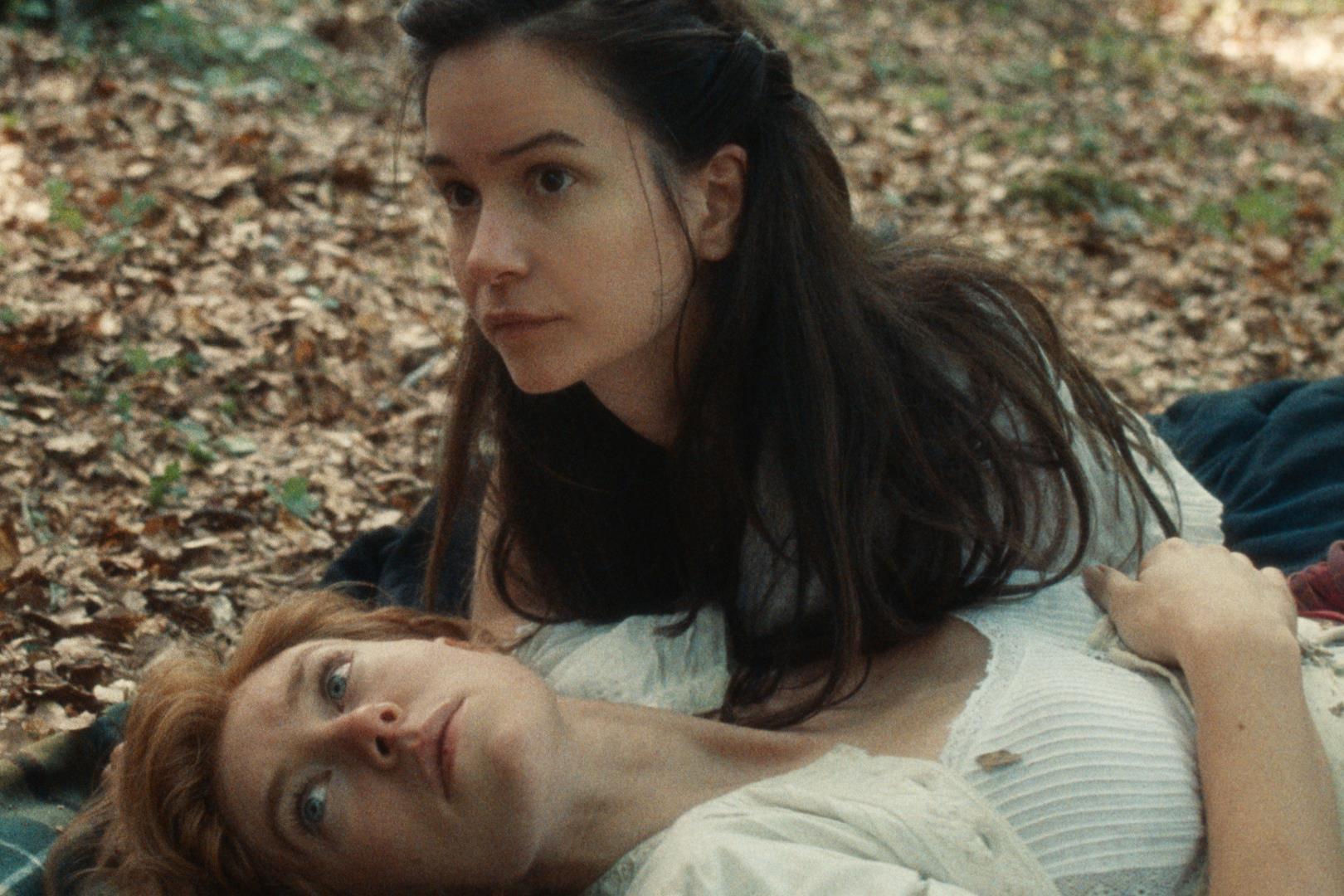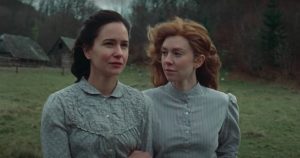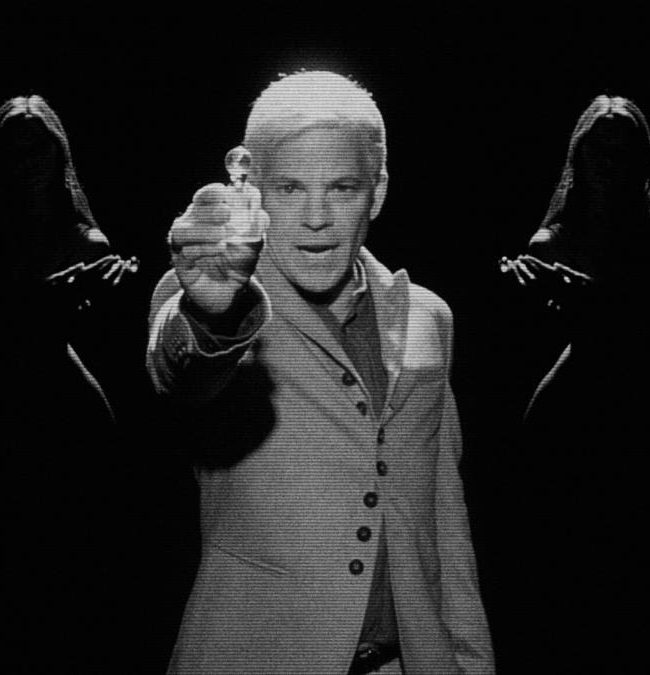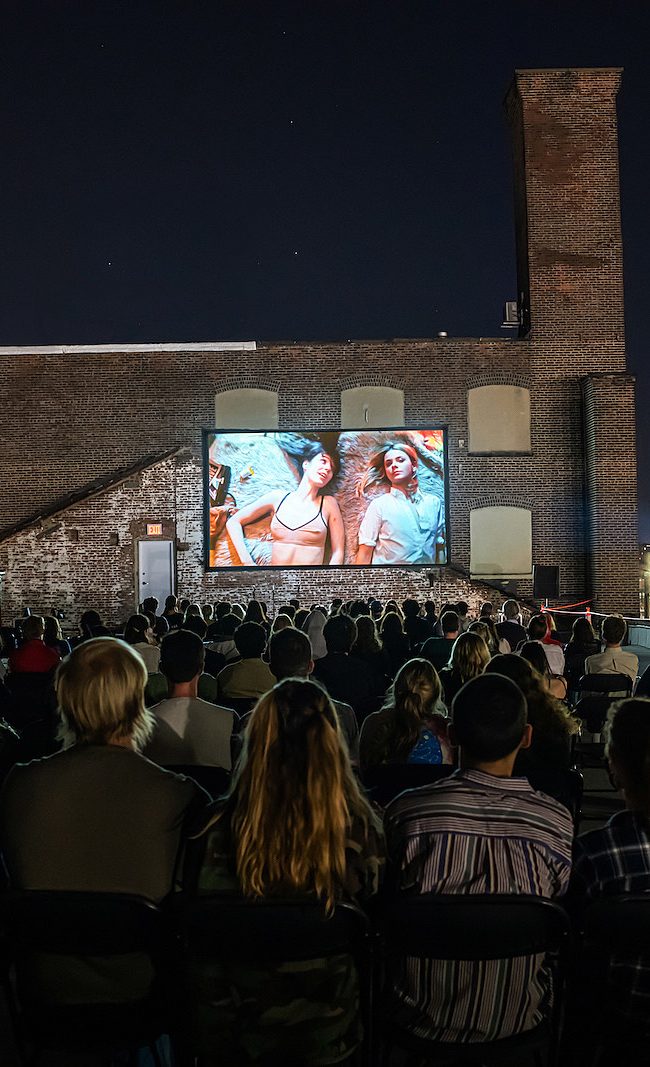A CONVERSATION WITH MONA FASTVOLD (THE WORLD TO COME)

(Mona Fastvold’s The World to Come is in theaters now and drops on VOD March 2 via Bleecker Street. Like what you see here on Hammer to Nail? Why not give just $1.00 per month via Patreon to help keep us going?)
When the thing you want most in life is an atlas, then you probably aren’t happy with where you are. This is Abigail’s life. 1856, rural New York, miles from a city, lifetimes away from happiness. “This morning, ice in our bedroom for the first time all winter,” Katherine Waterston’s voice opens The World to Come, presenting an excerpt from Abigail’s diary, pages which will be filled, by the end of the film, with the sheer solitude of queer woman in a time with little hope to offer her, “The water froze on the potatoes as soon as they were washed. With little pride, and less hope, we begin the new year.” Though she mourns the daughter her and her husband (Casey Affleck) lost to diphtheria before the film opens, mostly her sadness seems to come from the roteness of a life unlived.
Then Tallie (Vanessa Kirby) arrives. Her life just as empty, at least Tallie offers Abigail the comfort of mutual despair. If Abigail dreams of the world beyond, something unseen but imagined with perfection, Tallie reveries in the realm right in front of her, what she can taste, touch, feel, and love. Together, they fashion a friendship from the little joys they can find, and find themselves rather hastily as pioneers in another frontier. Throughout the fiIm, I just kept leaning over to my wife imploring “it’s going to end okay, right?” She just laughed at me. If we know anything about the seemingly new hot genre Forbidden Bodice Ripping Romance (see Portrait of a Lady on Fire, Ammonite), it’s that happy endings must remain in the mind of the audience.
“It has like a mood, kind of basic glimmer,” says director Mona Fastvold, “it’s sort of the way I wish it would have been with how I ended. I think that for me, I wanted it to be an end that I wished for as well. That would have been in a different time or a different place.”
I had a chance to chat with Fastvold during Sundance. After I shared my love for Norway, where she was zooming in from, we moved to talking to her new film, and what it was like to imagine a world that has come (and fortunately gone).
Mona Fastvold: I was doing a lot of research and really enjoying the research that the writers who were providing me with as well because they’re just like really wonderful to practice some of the parts and they just love all of that. We were working up the mountains of Romania in a very remote location that was physically challenging for everyone working on the film. I think that was something that just really grounded the experience. And then once you really got into the editing process, thinking more and more about the limitations of the characters.
Hammer to Nail: This is a generation of women that had very few options. Even to express themselves.
Mona Fastvold: Abigail constantly just writing, compulsively, wherever she is around her house. Which is something I really identify with her as well. I always do that, I have note pads and books and places I write everywhere on the kitchen table, a bathroom or anywhere. That being her only means of expressing her inner life. It’s something that sounds really interesting to just go in and explore further.
HtN: The thing I was really enjoying paying attention to was what she wrote down in her ledger versus what we saw on screen. And, she’s very careful not to write anything specific about what happened, but I’m pretty sure if Dyer [her husband] had read her ledger, he would have known what was going on. But I really enjoyed the things that you chose to show on screen versus on the page and how those two commented on each other.
MF: Yeah. Well, I think there’re the things she writes and then there’re the things she’s working on writing. And then perhaps there’s a ledger somewhere else. That’s more hidden from Dyer that’s small, or perhaps there are things that she would write down later on after this story that we see and that being read to us. So certain moments in that in the voiceover are precedent and just kind of moments so just trying to find the right words through to, about something. And then certainly alone other moments I think are there and then other moments are looking back in a way. I liked seeing different things in her ledger than to maybe what she’s saying, like she’s thinking, and wanting to write and articulate something that about her, the feeling she has, or like the actual feeling she has to something or the romantic feelings she has but then she writes about something fairly mundane instead. So it was to say exciting thing just to play with that in the filmmaking as well.
HtN: She has such an awareness of time when she talks about the women who came before her or the 1780s and how difficult it was.
MF: Yeah. Perhaps exciting. I love that line that Tally says, maybe they had certain hopefulness that we don’t have, because they were embarking on to this new adventure. And they’re stuck a little bit. And I thought that was interesting to think about that people probably have always looked at themselves from that. When you look at yourself in the placement, within your family and your family history and what came before you and what might come from ahead of you.
HtN: And it’s also interesting for me to think about I used to read the novels of Willa Cather and think about, that kind of thing. Oh pioneers, right? They’re not that far out, they’re still in New York, there’s a sense in the film that like, they might as well be in North Dakota as cutoff as they feel from. And especially as how cutoff she is from any sort of power when the sheriff won’t believe her and the husbands are poisoning their wives and things like that. I mean, it’s absolute powerlessness.
MF: Yeah, what’s interesting I thought about when I was reading more and more and kind of researching this particular time period in this area is that there was a lull in religion during this time period. People had been very, in living in very tight knit religious communities. And then all of a sudden there [were] these people farming, bigger areas of land and spreading out more. And all of a sudden, whatever customs and religion that they brought with them from Europe or wherever they were immigrating from, this was becoming less important. And they were living much more isolated. And even Abigail, she stopped going to church. And she’s not part of a community in the same way that the past generations were. So there is this incredible isolation that she finds herself in, from having with her grief as well, but also just from having from this lack of interest in being part of the community around her. Which I think allowed for the romance between her and Tallie to blossom in a different way, because there’s not a lot of eyes on them. So this idea that when the two of them find each other, that it is incredible moment of just like the great thing that I have been waiting for my whole life. Is this a miracle versus cycle? Why do I have these feelings for someone of the same sex? And I should feel guilty and mad about that? It’s more just about this. Like I have never heard about this.

A still from THE WORLD TO COME
HtN: Yeah. I loved that she didn’t spend too much time thinking about if these were evil thoughts or that it was too focused on the morality of it. I think we think of those times as being really repressed times but I like what you’re saying about, her life has moved in a certain way for all of this time and all of a sudden there’s something new that’s exciting and amazing. And is this the thing I’ve been working, waiting for? And I thought that was really well captured in the film.
MF: Thank you. No, I think that’s really what I saw was one of core of it. I really excited by was that all the spring free from the two of them to dare, pursue that. It’s just like stimulating, intellectually and emotionally and essentially. That could dare to do that because they felt that everyone deserves some greatness in their life and this is perhaps it, let’s that’s grab onto it.
HtN: How did this story come to you? Did the writers initiate this project? How did it get to you?
Mona Fastvold: No, I actually write myself a lot and I often write for other directors as well. So there was, and I felt a little burnt out. And then all of a sudden I had this, project was sent to me by Whitaker Lader and Casey Affleck. And I had seen my film [The Sleepwalker], they were excited to talk about this project. And I hadn’t really thought that I was going to direct something that I haven’t written myself. But I really liked the writers and and when I started reading it, it felt like it belonged in my universe and that I belonged in this as well. So immediate, it was a little bit of a love at first sight for this script.
HtN: It is interesting to me that the script came from two men. I mean, I’m glad that they found a female director to take it because I think it needed another step there. Were you all aware that you were telling, a queer a story from the 1850s, like a perspective that it would be very difficult for anybody to actually step into?
MF: I think that we were all really excited to tell a love story. And I think that was one thing that I was excited about is with Ron [Hansen] and Jim [Jim Shepard, the screenwriters] and myself has that we’re from different generations. I saw and I think that their perspective on friendship and love is different than mine. And I thought that was interesting to see, to kind of combine where they are at, in their relationships. And sort of how they think about falling in love and what that is. I think what I really, what struck me as very exciting about this story was also the depth of the conversation between the two of them and how that moved throughout the film. And I thought that was really beautiful. I think that it’s really important to tell all kinds of stories. Or any kind of story that someone is compelled to spend years and years to realize and to make it happen. And I guess I don’t particularly pick stories because they have this specific messages that the story itself and the people that we’re portraying I find them moving. And I find that hopefully if I can tell the story in a human as possible way, with as much love and care that I can then other people will feel moved by their story as well.
She sort of avoided my final question there, which is sort of the problem with this film. Don’t get me wrong, I absolutely love this film. It is beautifully shot, painfully re-created, in the performances from all four primary actors were some of the finest in Sundance this year. But I can’t write this article without discussing queer authenticity. Even for a film that I loved, I can’t help but wonder what it could’ve been like if there had been someone queer in the primary creative brain trust. This is a film about being a lesbian in the 1850s, as written by two heteronormative cisgender men, directed by a straight woman, and performed, primarily, by two straight actresses. Is there something missing? I don’t know. Because it’s missing. What tends to be missing in films of this nature is an invitation to the person being represented to come to the table and tell their story. Why isn’t someone like Lauren Wolkstein being asked to direct this? Or Lisa Donato? Or why not ask for queer script collaborator from someone like Tanya Saracho? And there are certainly enough Bi and Lesbian actress who would look good in period gear. What about Ruby Rose? Bella Thorne? Carrie Brownstein? I can probably name you 100 in ten minutes. Look, if you were making Judas and the Black Messiah and wanted to cast Matt Damon as Fred Hampton, this would be an obvious problem, right? Until we start asking these questions, a film about two lesbians made with no one queer involved will continue to be given a free pass.
– Bears Rebecca Fonté (@BearsFonte)











